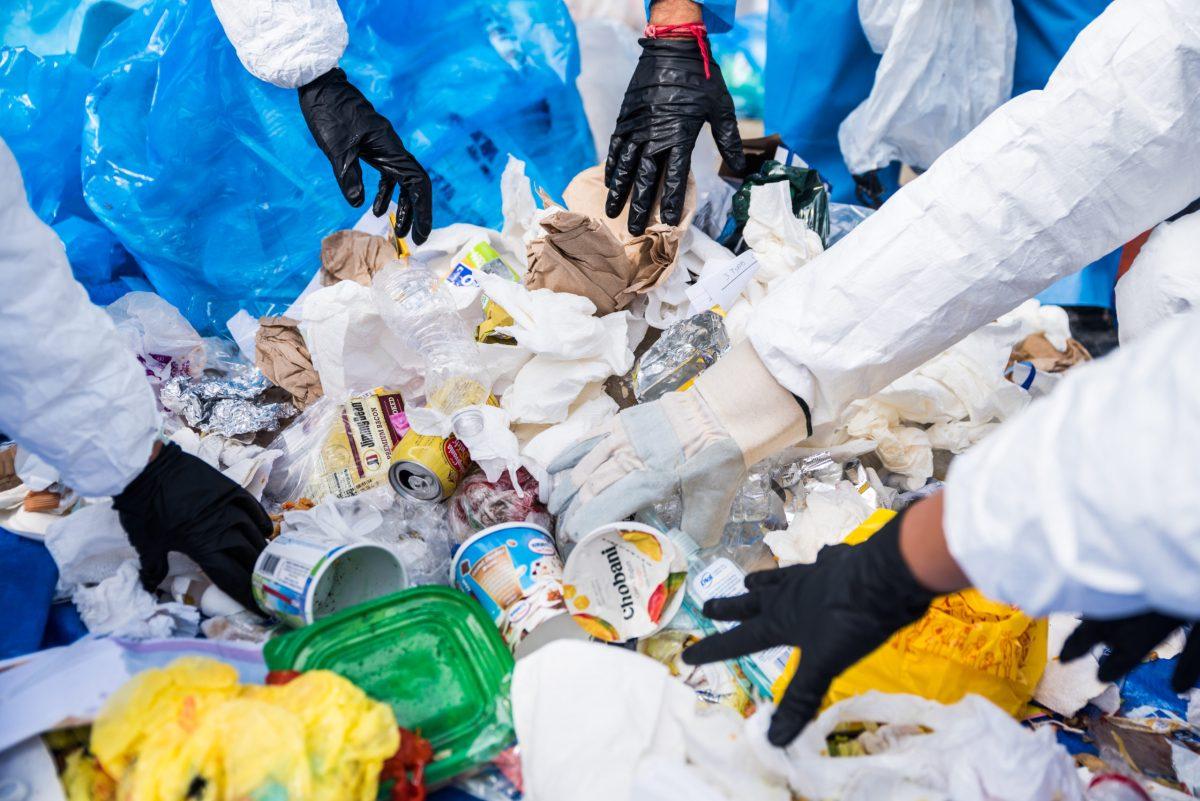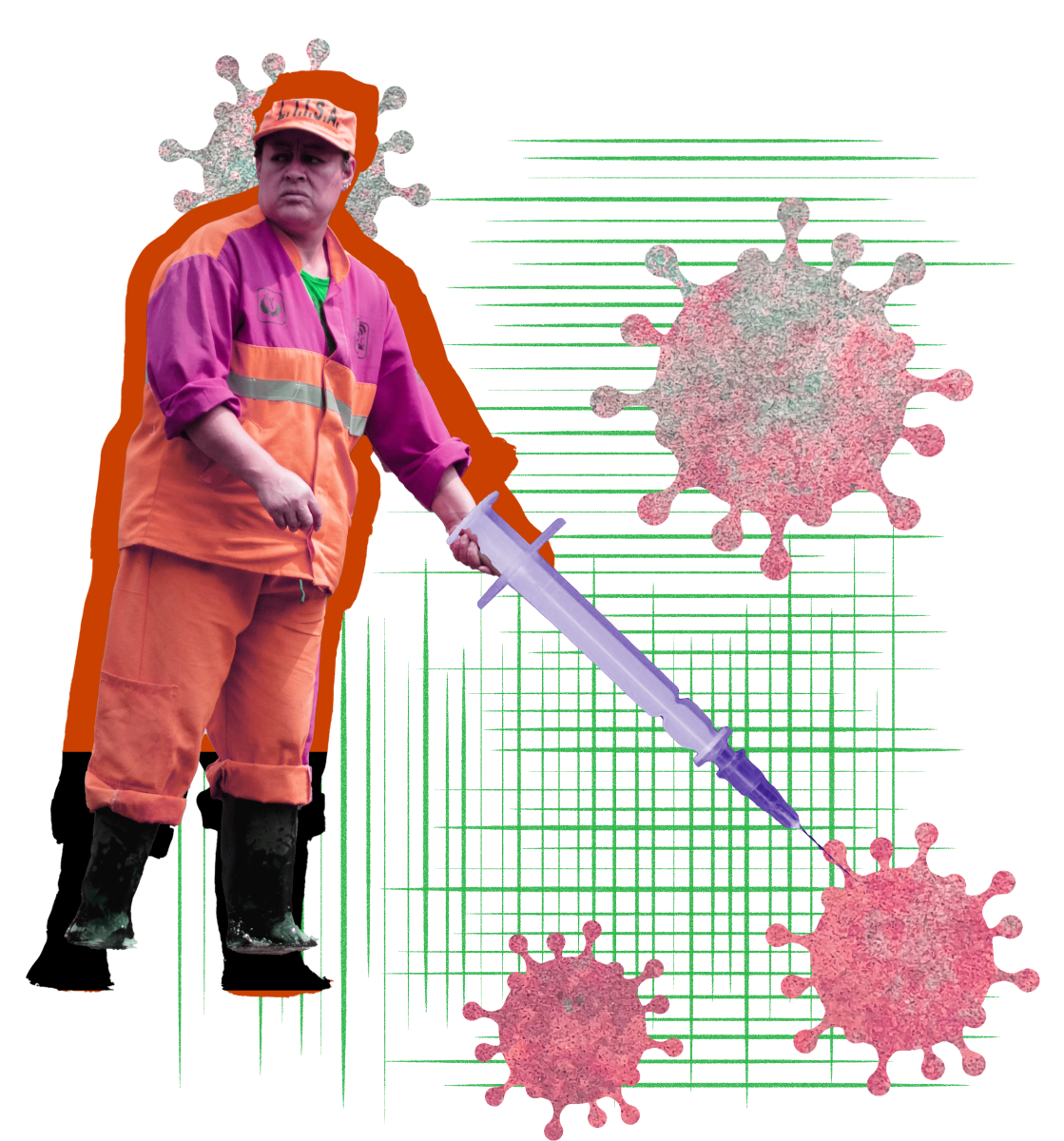The world has been swept up in the storm of a green revolution in response to the environmental crisis, and NJIT has been no exception, prioritizing sustainability in NJIT’s upcoming Vision 2025 and joining the Association for the Advancement of Sustainability in Higher Education. Thanks in part to a few students in NJIT Green who took initiative on several sustainability projects, NJIT has introduced dozens of new recycling bins, increased recycling compliance and hosted various events regarding sustainable practices. Founded last year, NJIT Green is a student organization dedicated to endorsing sustainable practices on campus by collaborating with the student body, faculty and administration.
[ngg src=”galleries” ids=”74″ display=”basic_thumbnail” thumbnail_crop=”0″]
Katherine Ji, the club’s president and a sophomore Biology major, explained that NJIT Green’s goals this year are to “reduce waste on all fronts: to reduce solid waste, to increase recycling compliance and to divert food waste to composting facilities.”
In order to gauge NJIT’s efforts regarding waste, it is essential to gain an understanding of how this institution stacks up in terms of waste and waste management. NJIT Green identified this need and worked closely with over 50 volunteers with the Albert Dorman Honors College freshman seminar classes and Maria Stanko’s Food and Ecology class and conducted three waste audits throughout the course of a week in October. On Oct. 15 and 16, Green collected waste outside of NJIT’s dining hall for the entire time that it was in operation in order to monitor food waste. On Oct. 17 the student volunteers took to Facilities Services, where all NJIT trash is collected and sorted, to tear open trash bags and sort through waste for five hours straight.
Ethan O’Malley, a Freshman Math major, was a part of the waste audit and said, “I think it’s important that we know how much waste we’re producing as a school so we know how we can structure our waste management policy.”
Eugene Osetskyy, a Mechanical Engineering major Freshman who was also a part of the audit, said, “Waste management is necessary to see if current waste management policies implemented by the school are working.”
Ji stated that “measurement is essential to management. An audit provides a snapshot of the contents of waste and the respective efforts in disposal at an institution. This year’s trash audit also marks the anniversary of the first waste audit collected last year, so this round will also identify whether recycling compliance has improved.”
Ji also remarked that collecting this data is important to acting responsibly as an educational institution. Around 1200 tons of waste is produced at NJIT in one year, according to NJIT’s Waste Report from Waste Management.
One major issue that NJIT Green’s first audit last year revealed was that 53.4% of trash by weight going to landfills could actually have been recycled. In this year’s audit, however, Green found that the number of recyclables going to landfills has been halved, with 26.7% of the waste being sent out being recyclable. Although there is still room for improvement, this reduction in recyclables going to landfills suggests that NJIT is recycling more compared to last year.
The two food waste audits were conducted at a booth right at the exit of the campus center dining hall. In both audits, NJIT Green found that students alone produce around 300 pounds of food wasted per day, totaling over a ton of food waste per week.
Daniel Cruz, a junior Civil Engineering major and Green’s Vice President of Administration, remarked that “our presence has definitely helped in getting those numbers down, and everyone’s been more than willing and happy to work with us. I think just our presence, just showing people how to do it, is making more people across campus more willing, knowing and wanting to recycle.”
When asked what NJIT Green’s future plans are, Cruz said “we are applying for a grant with the Department of Environmental Protection with NJ to purchase more bins and more upscale bins, especially for our outdoor area…. the DEP awards up to a million dollars to a college institution with environmental led initiatives. The change has to be at an institutional level to receive the funding.” This change could divert up to 2100 pounds of food waste coming out of the dining hall per week from landfills to a composter, where waste can be “digested” into fertile soil.
The waste audit also revealed that nearly 20% of food wasted across campus can be composted, so NJIT Green also has goals to provide the proper receptacles to collect this food waste outside of the dining hall.
NJIT has a long way to go until it is truly a sustainable campus, but Green’s waste audits showed that we are on the right track and have plans laid out for reaching future sustainability goals.
This story is part of our participation in a statewide climate reporting collaboration with members of the NJ College News Commons, a network of campus media outlets working together to cover the climate crisis in New Jersey.












































